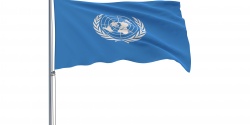Published: 27.11.2018

The United Nations order the states that have ratified the International Covenant on Civil and Political Rights (including Poland) to guarantee the "right to abortion". At the same time, the organisation appeals to countries where "assisted suicide" already exists to guarantee appropriate procedures for its application. This is stated in the General Comment on Article 6 of the Covenant concerning the right to life.
The aforementioned Covenant guarantees the right to life, yet the UN, in their Comment, mandate States Parties to the Covenant to provide for the possibility of killing a child in certain cases by performing an abortion. It is also stated that the state must not impose restrictions on access to abortion, which are i.a. allegedly discriminatory towards mothers. Moreover, it obliges the countries that have ratified it to ensure that abortion is always legal and that access to it "effective and affordable".
The Comment also refers to the social aspects of killing of a child through abortion. It shows that young people need to be educated about abortion and have access to fertility inhibitors. The UN also stated that women and girls who have killed an unborn child through abortion ought to enjoy guaranteed "protection" by the state during and after the abortion. It is supposed to ensure "confidentiality". In practice, this constitutes a restriction of the right of the immediate family to information about the unborn child and a restriction of the right of parents to bring up their children in accordance with their convictions.
The Comment discusses also euthanasia and assisted suicide. The UN recognise that the very decision to die made by a suffering person is sufficient to abolish the protection of the right to life guaranteed by the state and, at the same time, creates an obligation on the part of the state to support the "assisted suicide".
"The right to life of the unborn child has been completely omitted from the adopted Comment. However, what remains in force, is Article 6 (5) of the Covenant confirming that the unborn child has a separate legal entity in relation to its mother and that its right to life is protected. It is also worth recalling that the provisions of the 1989 UN Convention on the Rights of the Child, which are still binding on Poland, clearly indicate that "the child, by reason of his physical and mental immaturity, needs special safeguards and care, including appropriate legal protection, before as well as after birth," notes Rozalia Kielmans-Ratyńska, Deputy Director of the Ordo Iuris Centre for International Law.
The adopted Comment contradicts the agreement reached by the signatories of the Covenant at the Cairo International Conference on Population and Development, which states that "any measures or changes related to abortion within the health system can only be determined at the national or local level according to the national legislative process." Furthermore, the Comment is not legally binding. In practice, this means that States Parties to the Covenant are not obliged to incorporate the provisions adopted in the Covenant into their legal order, nor are they bound by the interpretation of the right to life provided by the Human Rights Committee.
Although the Comment does not introduce a new law nor changes the existing legislation, it will nevertheless provide another, stronger tool for exerting pressure on States Parties to provide access to the killing of children through abortion in certain cases and to waive the punishment for abortion. The Comment will constitute the main point of reference for the Committee as well as for other UN bodies in determining how the States Parties to the Covenant should shape their laws, policies and practices in accordance with "the standards of human rights", and what actions should be included in the monitoring process before all UN treaty bodies", adds Rozalia Kielmans-Ratyńska.

During Holy Week, when we remembered the martyrdom of Jesus, many Poles heard about the innocent death of 9-month-old Felek (such an altered name was given to him by Gazeta Wyborcza journalists). Potassium chloride – a substance used to carry out death sentences – was injected into the heart of the boy who was due to be born any day.

• Gazeta Wyborcza published an article titled "Ordo Iuris Wants the Constitutional Court to Delete the Premise of Endangering a Woman’s Health. Prof.

17.04.2025
• The Ordo Iuris Institute has prepared an opinion for the UN as part of a thematic report on surrogacy and its impact on the rights of women and children.

• Representatives of Ordo Iuris took part in the second round of consultations ahead of the 58th Session of the UN Commission on Population and Development (CPD58) on global health policy.